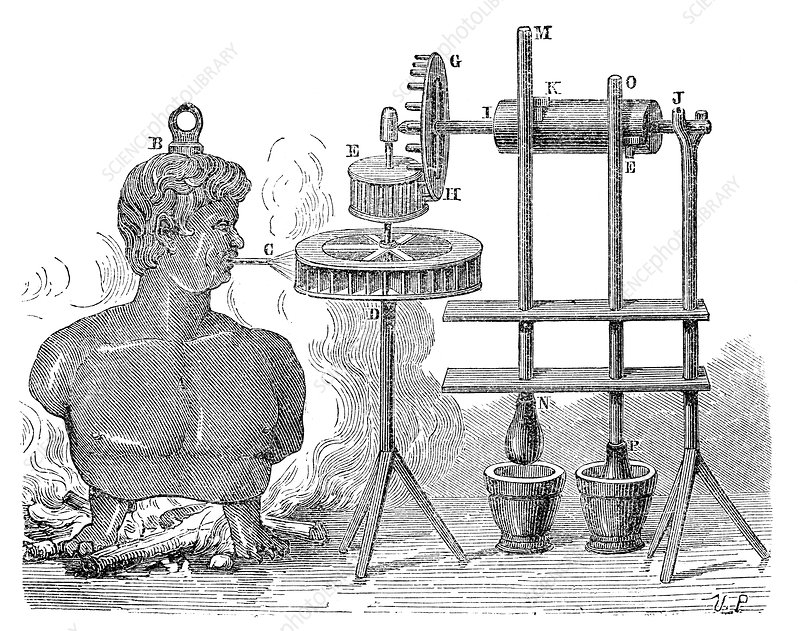This philosophical study preceded science! And read about other scientific marvels of the 19th century.
The transition of natural philosophy into science in the 19th century
The scientific contributions of the 19th century are the most significant, as it's only in this century science was taken as a profession, and natural philosophy was replaced with science. The creation of electromagnetism as a new branch and significant contributions to thermodynamics paved a pathway to every technology we have achieved ever since The industrial revolution in Britain was at its peak during the early 19th century, which jumpstarted the century.
table of contents
- the first quarter
- the second quarter
- the third quarter
- the fourth quarter
- timeline
- important innovators
- summary
1800-1825:
The most significant limitation in the 18th century was unreliable transportation. The usual modes of transportation then included using animals and boats. This could have been faster and more efficient. Then the advancements in material sciences enabled vehicles to be steam-powered, which made it possible for people and goods to move across the world much faster and cheaper than ever. During the same time, Karl von drais was working on a machine regarded as the bicycle's forerunner. So the first quarter of the 19th century made considerable contributions to improving the conditions of transportation, which accelerated the world in reaching where we are today. This quartercennial ended along with the industrial revolution.
1825-1850:
This quartercennial began with the isolation of aluminium, the most essential metal in engineering. Being lighter, cheaper, ductile and protected from corrosion, aluminium made the perfect metal to build machines. This era witnessed the invention of the electric motor and the internal combustion engine, which were more efficient and accurate than the steam engine. This quartercennial improved the innovations made in the previous quarter and marked the introduction of electricity in engineering.
1850-1875:
"War created the conditions for great advances in technology...without war, men would not traverse oceans in hours, travel in space, or microwave popcorn."-Adrian r lewis
the mistrust between slavery dependent south and the automated north grew, leading to the American civil war, which lasted from 1861-1865. Wars motivate people to develop newer technologies in warfare. American civil war gave some of the finest weapons known to humankind. Henry rifle, Gatling gun, the ironclad warship, USS Monitor and CSS Virginia were first used in this war. Bessemer's process enabled steel to be mass-produced at a lower price than before. The first transcontinental railroad, the first commercially sold typewriter and the safety cycle were also the products of this era.
1875-1900:
"We will make electricity so cheap that only the rich will burn candles."- thomas edison
this era began with Edison establishing his first laboratory in 1876. Edison was the greatest inventor of all time. He contributed to the engineering field by developing the Edison effect, the Edison light bulb, the Edison screw, Edison's Phonograph Doll, the Electric pen, the Edisonian approach, Edison–Lalande cell, Acoustic telegraphy, Carbon microphone, Etheric force, Fluoroscopy, Electric power distribution, Grasshopper telegraphy, Kinetoscope, Nickel–iron battery, Phonograph, Phonomotor, Quadruplex telegraph, Tasimeter War of the currents etc. Crude electricity supply systems were made available in UK and France. In 1885, the singer produced the most popular sewing machine. In 1892, john Froelich invented a tractor which is powered by petrol. Cardboard boxes were designed in this era. This era marked the beginning of modern standards in factories.
timeline of some significant contributions in the 19th century
- 1804-steam locomotive engine
- 1825-aluminium isolation
- 1826-internal combustion engine
- 1829-electric motor
- 1855-bessemer process
- 1856-worlds first oil refinery
- 1859-ironclad
- 1861-henry rifle and other weapons
- 1868-safety bicycle
- 1886-karl benz sells the first commercial automobile
important innovators of the 19th century
- Alexander Graham Bell
- Gottlieb Daimler
- Thomas Edison
- Michael Faraday
- Oliver Heaviside
- Wilhelm Maybach
- Samuel Morey,
- Alfred Nobel
- Franz Reuleaux
- Vladimir Shukhov,






Comments
Post a Comment